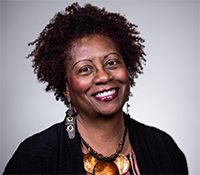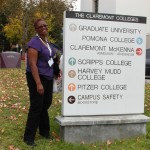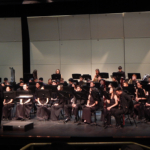BE CONFIDENT, BE YOU – AUTHENTICITY IN THE COLLEGE APPLICATION PROCESS!
“Be true to yourself.” “It doesn’t matter where you go.” “Find the college/university that is the best fit for you.” These phrases are like guide posts in the world of college admissions – at least in my little corner of it. Yet, students are bombarded with messages like “You need at least 10 AP courses to be competitive,” “It takes a 1600 on the SAT to be accepted to Highly Selective University,” “You’ll never be admitted to Selective College if you haven’t launched your own company.” And that line of messaging continues. As I reflect on the college admission scandal dominating the evening news and social media, the work I do with students on a one-to-one basis, and the many students I advise in workshop settings, I feel compelled to share a few thoughts.
Did you know that the average acceptance rate for all four-year colleges in the US is approximately 66% (~2/3 of applicants) according to a 2017 report from the National Association for College Admissions Counseling (NACAC)? But we don’t hear much about those schools because the emphasis is typically on a small number of ‘elite’ institutions with single-digit or less than 20 percent admit rates. A broad brush is painted over schools with a higher admit rate, and without a deeper dive, we are led to believe that such schools are inferior. As the stress levels for students, parents and counselors continues to climb during the college application and admission process, unfortunately some are compelled to engage in unethical actions.
I prefer to challenge students and parents to think differently and I choose messages to help families broaden their own thinking about this process. Here are a few examples:
- With 3,000+ post-secondary institutions, there is a college right for you/your child
- Be open-minded about exploring colleges/universities
- Don’t limit yourself (and your options!) by focusing only on “name brand” schools
- Know yourself and the “gifts” you would bring to a college community
- Work hard, do your best and know that you still may not be admitted to your first choice school
- Keep your college list manageable: 12-14 schools is reasonable; 20+ is excessive
- Be your authentic self throughout this process; stop trying to second-guess admissions officers
March and April tend to be agonizing for seniors, awaiting college admission decisions. And yes, many of them will receive unfavorable results. I recently shared the following words of encouragement to all of my seniors, and I include them here, as they can never be said too often:
“PLEASE DO NOT INTERNALIZE THESE ADMISSION DECISIONS AS A REFLECTION OF YOUR SELF-WORTH. Each one of you are smart and talented young adults, with many gifts to share. Do not allow these admission decisions to define you to be anything or anyone less.”
I have never been more proud to hold memberships in 5 professional organizations that enforce adherence to a code of ethics, and require ongoing training and professional development:
- Independent Educational Consultants Association (IECA)
- Higher Education Consultants Association (HECA)
- National Association for College Admissions Counseling (NACAC)
- Western Association for College Admissions Counseling (WACAC)
- Southern Association for College Admissions Counseling (SACAC)
All of these organizations have a wealth of information and resources for families navigating the college admission process and even resources to support middle school students.
And on that note, I close with a simple reminder that The Journey Begins with You…! Good luck!
Antoinette Battiste is an Independent Educational Consultant and 20+ year resident of Evergreen. She is an active volunteer with many community organizations in Silicon Valley, including Alpha Kappa Alpha Sorority, Inc., Santa Clara County Alliance of Black Educators (SCCABE), Silicon Valley Black Chamber of Commerce, the African American Community Services Agency (AACSA), and the Northern California Association of Morehouse Parents (NCAMP).




